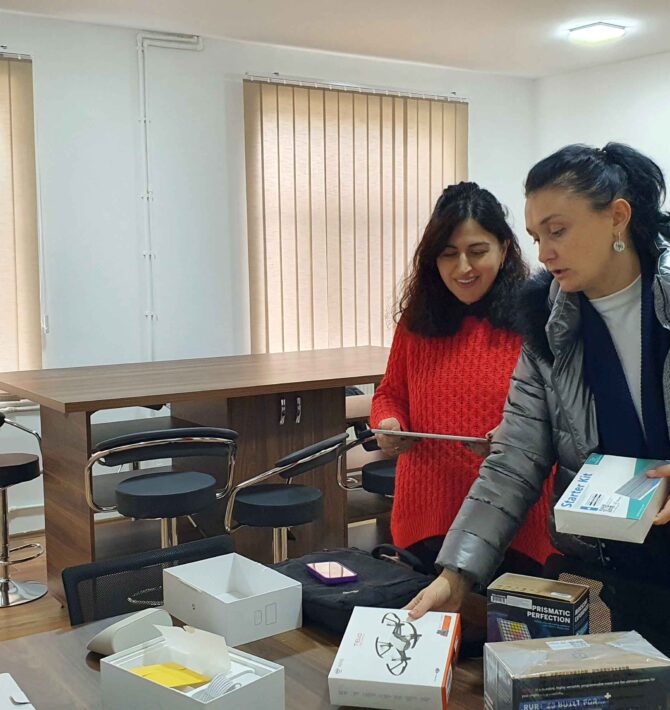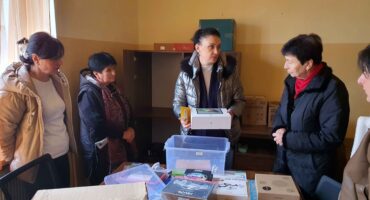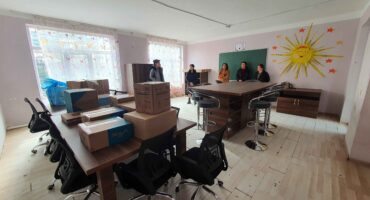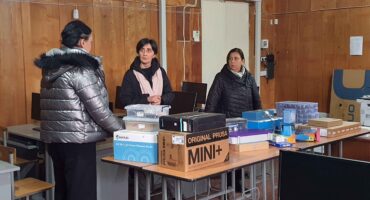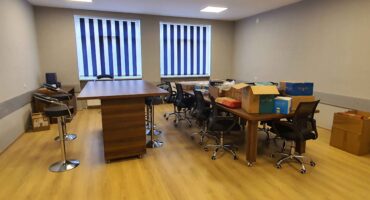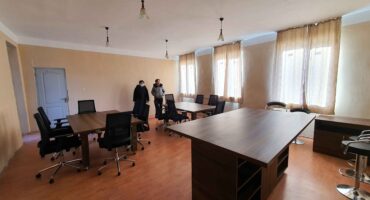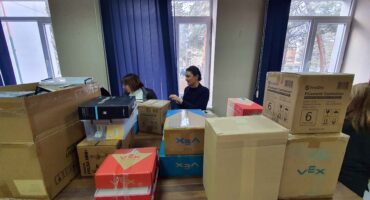Innovative Workspaces for the STEAM Extracurricular Program Established in 12 Schools
The STEAM extracurricular program is being gradually introduced in 200 pilot schools across Georgia, with the support of the World Bank, within the framework of the Innovation, Inclusion and Quality (I2Q) project. This initiative has seen significant progress; the program is currently operating successfully in 80 schools, and by the end of the 2024-2025 academic year, it will be expanded to an additional 120 schools. All 200 pilot schools are equipped with the necessary educational resources and equipment. Over 400 science teachers have undergone retraining.
Specialized STEAM innovative workspaces have been created in 12 of the pilot schools selected by the Ministry of Education, Science, and Youth of Georgia, located in various regions of the country. These workspaces have been operational since 2023 at Tbilisi Public School N126 and Zugdidi Public School N5.
In early December 2024, the selected schools received appropriate STEAM educational resources, including sets for learning programming, robotics, educational science, wind energy, green energy, 3D printers, drones, and computer equipment. The innovative spaces were also furnished with special furniture that meets expert-proposed standards. Each workspace includes a video conferencing system to facilitate remote connections with other schools, enabling the implementation of joint STEAM projects and various activities.
The STEAM innovative workspaces established in these 12 selected public schools hold significant importance for both – the schools and the surrounding regions. The STEAM program, alongside the modern technical resources provided by the I2Q project, creates opportunities for students to engage in innovative projects. Furthermore, these 12 schools will serve as STEAM hubs, linking other schools in the region. They will share knowledge and experiences, fostering the creation of joint STEAM projects. A regional and national conference for STEAM projects will be organized, allowing students to present their work to a broader audience.
Under the I2Q project, STEAM innovative spaces were developed in the following schools in 2024:
- Borjomi Public School N6
- Bagdati Public School N2
- Tsalenjikha Public School N2
- Temur Bokuchava Apkhazeti Public School N7
- Kutaisi Public School N33
- Akaki Tsereteli Sachkhere Public School #4
- Ditsy Public School in Gori Municipality
- Mirza Gelovani Tianeti Public School N1
- Kvareli Public School N2
- Peria Public School in Khelvachauri Municipality
The I2Q project general education component lead visited all ten schools and met with heads of educational resource centers, school principals, and science teachers who will work in the STEAM innovation spaces. She provided detailed explanations of the workspace functions and instructions for organizing the space and utilizing STEAM resources.
Mr. Jeffrey Nowak, an international expert from the consulting company IBF Expertise SA, will provide support and consultation to the schools during the 2024-2025 academic year.







